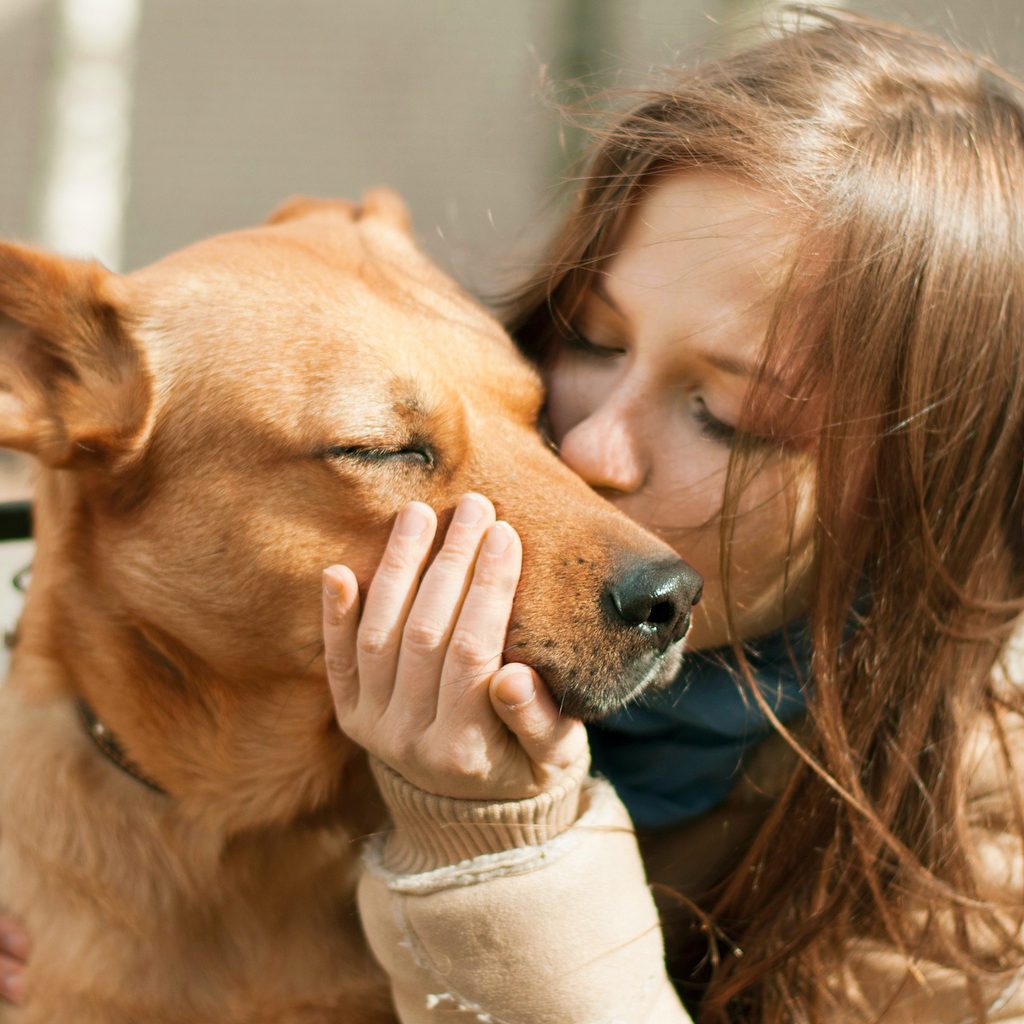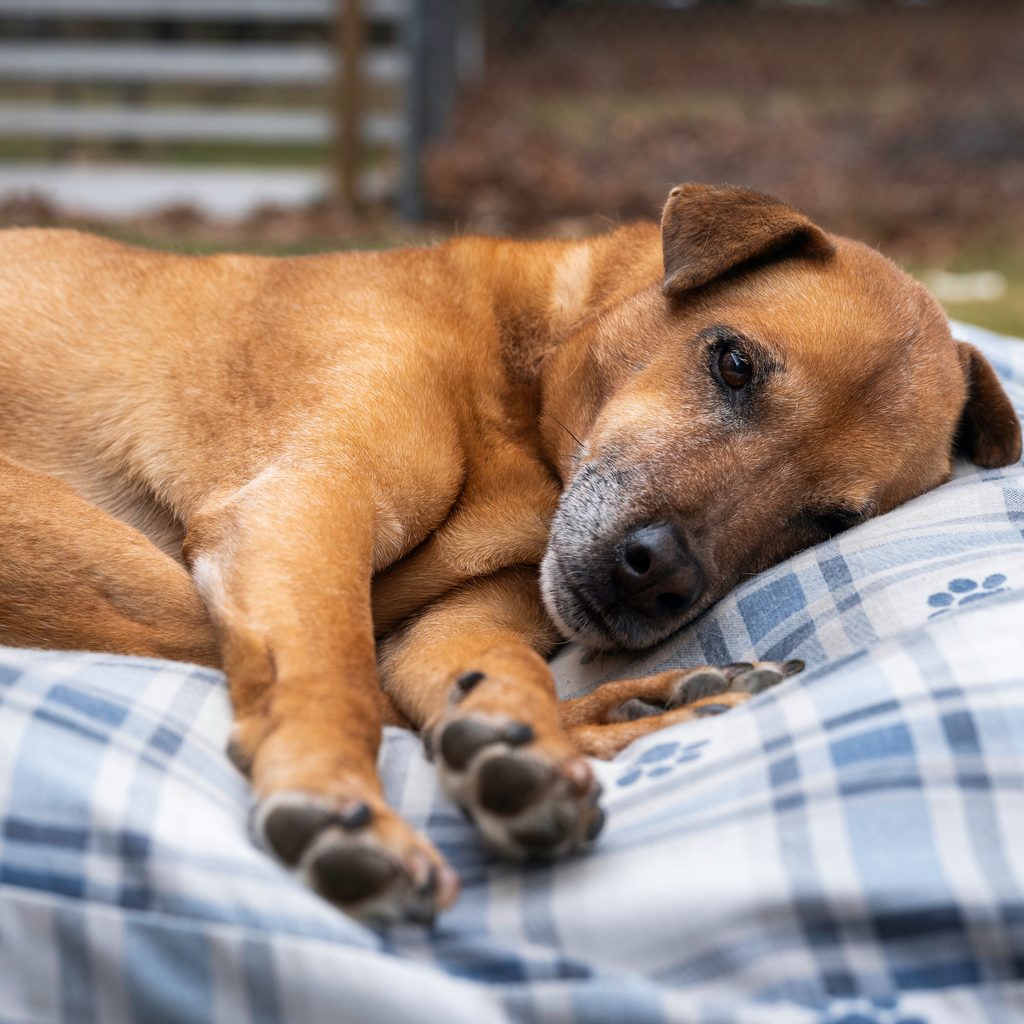Dogs can be so energetic and happy-go-lucky that it’s sometimes easy to forget they struggle too. Sadness or loneliness in dogs can look like many different things, from lethargy and more frequent naps to a lack of interest in usual activities. If you’ve noticed your dog acting differently recently, you may have found yourself asking, “Can dogs be depressed?”
You next may be asking yourself how you can care for a depressed pup, and we have answers for you! We’ve gathered some of the veterinary industry’s best advice on canine depression and effective ways to treat it. Of course, your veterinarian will have tips to share with you, too, so consider making an appointment if your pup’s behavior concerns you. Until then, here’s what you need to know.
Can dogs be depressed?
As much as we hate to think about our fur babies being sad, it’s true that dogs can experience depression just like people do. Canine depression may not be as emotionally complex as the depression that afflicts humans, but it can manifest in a lot of the same ways—even as seasonal depression.
According to the American Kennel Club, many symptoms of depression can be the same as when a dog is feeling physically ill or in pain. That is why it’s essential to make an appointment with your veterinarian if your pup is acting strange. Dr. Leslie Sinn, a professional dog trainer and Diplomate of the American College of Veterinary Behaviorists, notes, “In general, if a dog is slowing down or is reluctant to engage, especially in the absence of some life-changing event, then I would bet huge amounts of money that it is medical or pain-related.” So don’t hesitate to give your vet a call!

What causes depression in dogs?
As Dr. Sinn suggests, a “life-changing event” can be enough to trigger a bout of depression in dogs. This could include anything from the death of an owner or animal companion to a move, a switch in routine, or even a change in their social circle.
The Southwind Animal Hospital of Memphis, Tennessee, lists the following signs of depression in dogs:
- low activity levels
- isolation
- loss of interest in things they enjoy
- change in eating habits
- change in sleeping habits
- howling, whining, and new vocalizations
- uncharacteristic aggression
If your dog has been exhibiting depressive symptoms, resist blaming yourself. Veterinary behaviorist Dr. Kelly Ballantyne says, “We regularly meet with experienced dog owners who provide appropriate amounts of exercise, enrichment, play, and training, and still have dogs that suffer from fear, anxiety, and depression.”
Canine mental health is a result of a combination of factors. Genetics, environment, early life experiences, and everyday interactions can all have an effect. It may help to think about any recent changes or difficulties in your pup’s life, but don’t be frustrated if nothing comes to mind. The learning never stops for pet parents.

How can you cheer up a depressed dog?
Even though dogs can often find their way out of depression on their own, there are a number of things you can try to help them out of their funk. Consider offering your pup more attention or increasing their activity levels through walks and play. Look for anything that gets their tail wagging!
Offering your buddy some extra dog-to-dog interaction, whether at a dog park or at home, might encourage them to break out of their shell. While helpful in lifting their mood if they’ve recently lost or moved away from a four-legged friend, any dog will likely enjoy socialization and play.
It’s important to remember that boredom and a general lack of fulfillment can also contribute to canine depression. Purina notes that dogs who were trained for a job — like herding breeds — may be more susceptible to depression, anxiety, and other behavioral issues. Puzzle toys, slow feeders, and other interactive objects can offer stimulation, though nothing can replace exercise, companionship, and shows of affection. Reward-based training can go a long way toward helping your dog feel successful—just don’t forget the treats!
As daunting as canine depression may seem, we hope you feel empowered by the knowledge presented here. Don’t hesitate to reach out to your veterinarian for advice. They can determine whether you’re really looking at depression and what you can do to give your pup’s mood a boost. There are so many depression-busting things you can try — you’ve got this!




